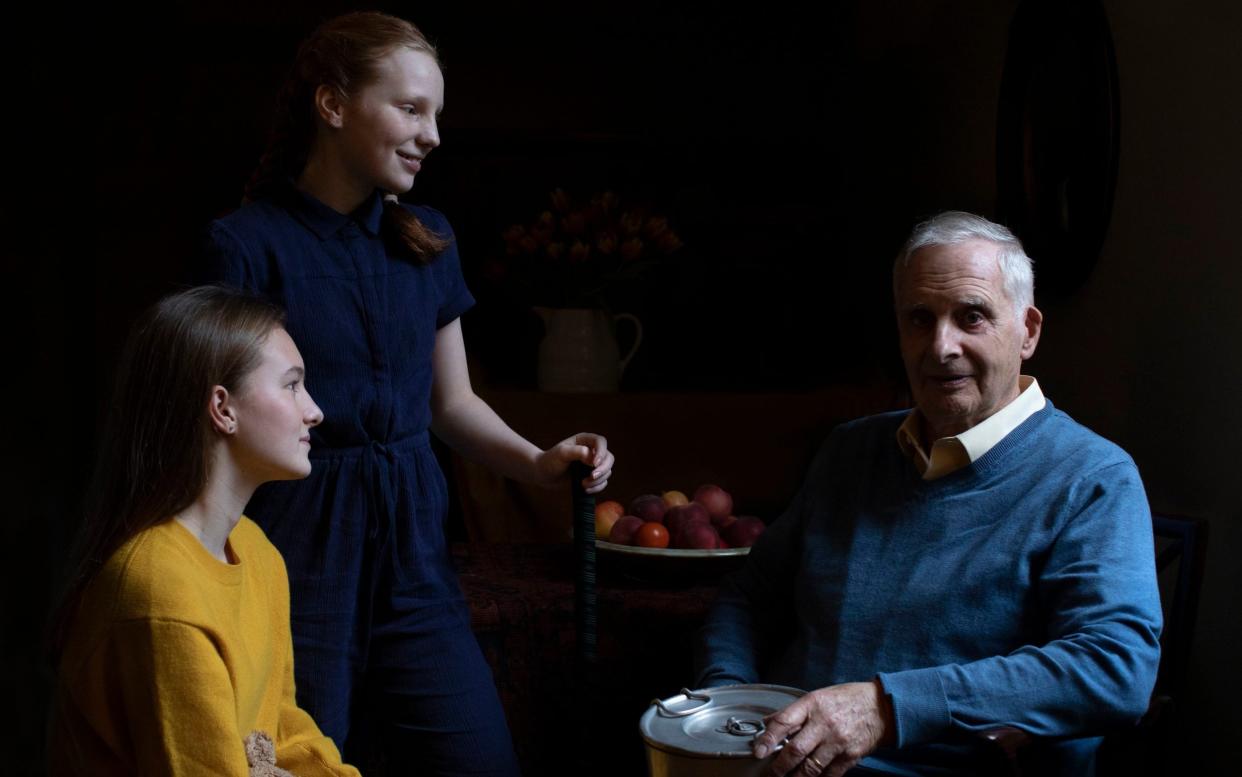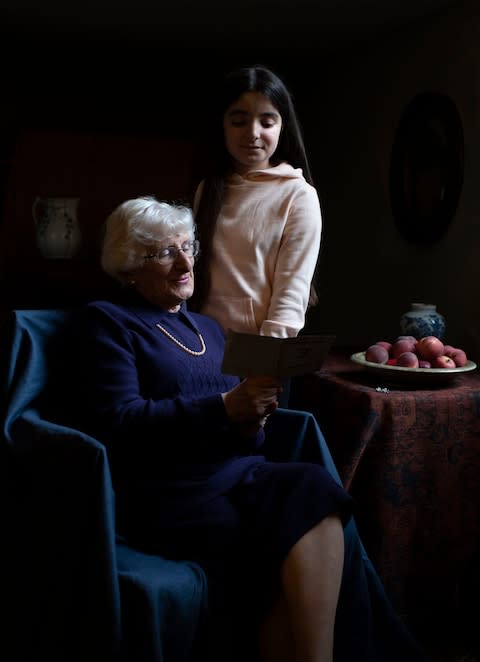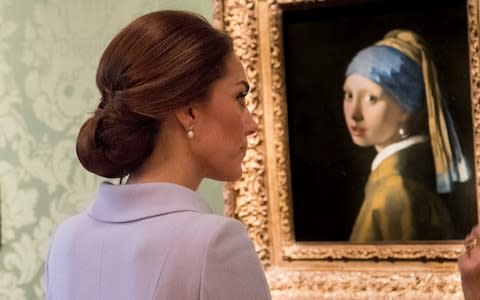Duchess of Cambridge inspired by Anne Frank for Holocaust portraits

The Duchess of Cambridge has said she took inspiration from Anne Frank's "sensitive and intimate" interpretation of the horrors of the Holocaust for the photographs she has taken of two survivors for a new exhibition.
The 38-year-old said The Diary of Anne Frank was "one of the most moving accounts" she had read as a girl and as such was one of the "underlying inspirations" behind two haunting portraits she took to mark 75 years since the end of the Holocaust.
The photographs were taken at Kensington Palace earlier this month and will feature in the exhibition, due to open later this year, among 75 powerful images. Each portrait, four of which were released on Monday to mark Holocaust Memorial Day, depicts the connection between a survivor and subsequent generations of their family.
The project was a collaboration between the Holocaust Memorial Day Trust, Jewish News and the Royal Photographic Society (RPS). Details of the exhibition will be released in due course.
The Duchess, a keen photographer and patron of the RPS, spent time with her two subjects, Yvonne Bernstein, 82, and Steven Frank, 84, before photographing them. She said that despite "unbelievable trauma at the start of their lives" they were "two of the most life-affirming people" she had met.
"They look back on their experiences with sadness but also with gratitude that they were some of the lucky few to make it through," she added.
"Their stories will stay with me forever. Whilst I have been lucky enough to meet two of the now very few survivors, I recognise not everyone in the future will be able to hear these stories first hand. It is vital that their memories are preserved and passed on to future generations, so that what they went through will never be forgotten."
The Duke and Duchess of Cambridge will join high-profile figures, religious leaders and survivors for a national commemorative event in Westminster today. The ceremony will mark the 75th anniversary of the liberation of Auschwitz-Birkenau and will honour survivors of the Holocaust, Nazi persecution and subsequent genocides in Cambodia, Rwanda, Bosnia and Darfur. The Duchess said she wanted to ensure her portraits were "deeply personal" to her two subjects whilst also being a "celebration" of family and the life that they have built since arriving in Britain in the Forties.
Mr Frank, originally from Amsterdam, was sent to several concentration camps as a child. The Duchess photographed him alongside his granddaughters Maggie and Trixie Fleet, 15 and 13.

The families chose items of personal significance for inclusion in the photographs. Mr Frank held a pan that his mother kept with them in the camps and a tomato from his garden. During his time in the Theresienstadt Ghetto, he helped another prisoner grow tomatoes, having picked out the pips from rotten fruit. "I became his little helper, watering these tomatoes," he said.
"He showed me how to pick out the side shoots so they grew straight, then when he was sent off to a camp in Poland he asked me to look after his plants. I was so proud to be asked - I was only eight.
"Since the war I have grown tomatoes at home in the greenhouse and every time I water them I think of this man - I don't even know his name. I still feel, 75 years on, that I'm watering his tomato plants for him. When the tomatoes are out now the grandchildren come and help to pick them."
The pan was one of the few items his mother had been allowed to keep when they were first taken to a camp. Mr Frank said "It was particularly important in the last camp [Theresienstadt] because we were basically just being starved to death there." His mother would do washing for other prisoners in exchange for a small amount of bread.
"Eventually she would get all of these crumbs in a pan, add hot water and make a paste." Mr Frank added.
"She would come into the children's barracks where I was with my brothers and feed us in turn with one spoon, a mouthful at a time. I never saw her eat a spoonful herself. That food kept us going - the pan was the most important thing she took into the camp."
He said he hoped people would not only see the beauty of the photography in the exhibition but would also think of "the people behind the photos" and the families they lost.
His granddaughter Trixie described the experience as "amazing" and said the Duchess was "really interested" in their family. Her sister Maggie added: "I think it helped put into perspective that he's just our Oupa - he's our grandpa as well as a Holocaust survivor."
Ms Bernstein, originally from Germany, was hidden in France during most of the Holocaust. She was pictured by the Duchess with her granddaughter, Chloe Wright, 11.

Ms Bernstein's father was in Amsterdam on business during Kristallnacht in 1938 and went into hiding before eventually getting a UK visa and a job in the jewellery business in Birmingham.
Her mother managed to get a domestic visa to work for a vicar in Nottingham but could not take her daughter. They expected to be reunited a few weeks later but war broke out and she was taken away by her aunt and uncle.
Ms Bernstein recalled the moment the Nazis tracked them down.
"It was very frightening because they knocked on the door and my uncle ushered them into the lounge and closed the door," she said.
"My aunt tried to run down the stairs with us but they saw us, and came rushing out, and shouted down the stairs, 'Come back up again' - then I really was scared."
Her uncle was sent to Auschwitz where he was murdered.
In 1945, Ms Bernstein, then eight, arrived in Britain to be reunited with her parents, of whom she had no memory.
She is pictured holding her German ID card, which is dated March 3 1939 and stamped with the letter J - one of the many ways Jewish people were singled out.
On the table is a brooch bought for her by her daughter and made by the jewellery firm founded by her great-grandfather whose factories were eventually seized by the Nazis.
She said: "It's important that what my aunt and uncle did for me isn't forgotten. My aunt suffered a tremendous amount but she always remained as cheerful as she could for our sakes."

The Duchess drew on Vermeer's influence, a reference to both survivors' strong links to the Netherlands. Ms Bernstein's father was based there when he was forced into hiding and Mr Frank lived in Amsterdam.
The pictures were taken next to a window that brought in light from the East, the direction of Jerusalem.

 Yahoo News
Yahoo News 
